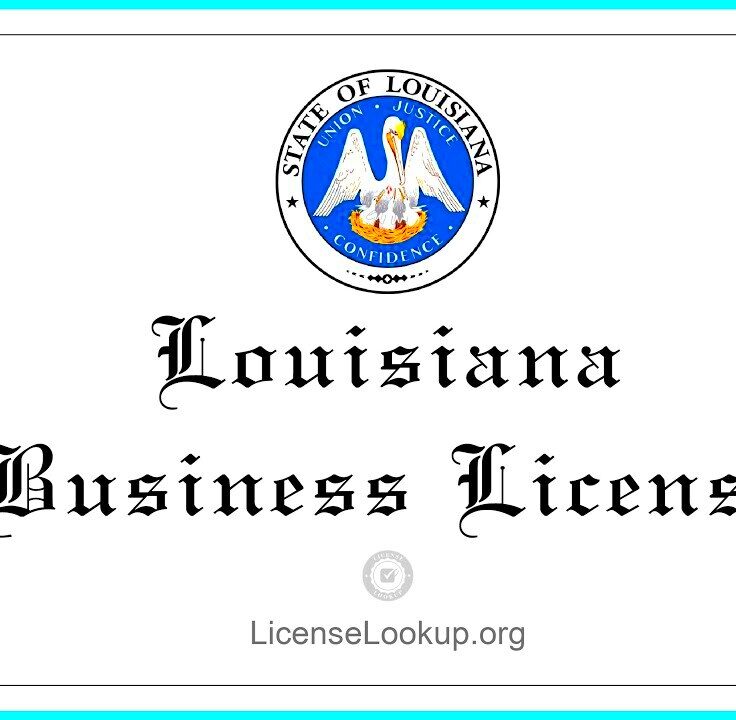What You Need to Know About Louisiana Business Regulations
Embarking on a business venture in Louisiana can be quite thrilling, albeit with some pressing need for comprehending the attendant policies. Unique statutes as well as prerequisites may be found in Louisiana which all entrepreneurs must pay heed to so that they operate smoothly and within the law. By understanding the licensing requirements, tax duties, labor laws, and environmental rules; you will save yourself time, money, and hassle in future. This part gives you a general idea of what to keep in mind while traversing through Louisiana’s commercial world.
Key Licensing Requirements for Businesses

In order to begin your business in Louisiana, you should obtain all required licenses and permits hence here is a list of the main things that must be considered:
- Business License: Most businesses in Louisiana must register for a general business license with the state.
- Occupational Licenses: Depending on your business type, you may need specific occupational licenses. For instance, healthcare providers, contractors, and food service establishments have unique licensing requirements.
- Local Permits: Check with your city or parish for any additional local permits required to operate legally.
- Sales Tax Permit: If you plan to sell taxable goods or services, you’ll need to apply for a sales tax permit from the Louisiana Department of Revenue.
Make sure to consult the Louisiana Secretary of State’s website for more details and to ensure you’re meeting all requirements specific to your business.
Choosing the Right Business Structure
The decision of selecting a business structure has very important consequences for tax, liability, and fundraising. Here are some common options available in Louisiana:
| Business Structure | Description | Pros | Cons |
|---|---|---|---|
| Limited Liability Company (LLC) | A flexible business structure that combines the benefits of both a corporation and a partnership. |
|
|
| Sole Proprietorship | A simple business owned and run by one individual. |
|
|
| Corporation | A legal entity separate from its owners, providing limited liability. |
|
|
| Partnership | A business owned by two or more people who share profits and liabilities. |
|
|
Take your future objectives into account; you can ask legal or financial experts for their suggestions on which type of structure corresponds most appropriately with your company idea
Tax Obligations for Louisiana Businesses
As a Louisiana business person, comprehending your fiscal responsibilities is paramount. However, one may be surprised by the more complicated nature of our taxes. Such organizations as yours should be aware that the state has different forms of taxation including state income tax, sales tax and local taxes among others. Below is an overview:
- State Income Tax: Louisiana levies a state income tax on business income. The rates vary depending on your income bracket, so it’s wise to consult with a tax professional to understand your potential liability.
- Sales Tax: The state imposes a sales tax on the sale of tangible personal property and certain services. The current state sales tax rate is 4.45%, but local jurisdictions may add their own sales taxes, leading to a combined rate that can be higher.
- Franchise Tax: Businesses operating in Louisiana may also be subject to a franchise tax, which is based on the net worth of the company.
- Property Taxes: If your business owns real estate, you’ll be responsible for local property taxes, which can vary significantly depending on your location.
Keeping yourself updated in terms of your tax demands is useful in avoiding fines and making sure that you are able use any tax credits or reductions which may have been offered for businesses based in Louisiana.
Employment Laws and Employee Rights
Being an employer in Louisiana means you should know the employment laws that are there to protect your workers and guide your operations. When you have a clear understanding of these laws, it makes it possible for you to establish an equitable and secure environment at work. The following are some important highlights:
- Minimum Wage: Louisiana follows the federal minimum wage of $7.25 per hour. Some localities may have higher rates, so it’s important to check.
- Overtime Pay: Employees who work over 40 hours in a workweek are entitled to overtime pay at a rate of 1.5 times their regular hourly wage.
- Anti-Discrimination Laws: Louisiana prohibits discrimination in hiring, firing, and promotions based on race, color, religion, sex, or national origin. Be sure to follow the guidelines set by the Equal Employment Opportunity Commission (EEOC).
- Worker’s Compensation: Louisiana requires most employers to carry workers’ compensation insurance to provide benefits to employees who get injured on the job.
Acquiring knowledge about these laws, and following them, is essential in understanding their relevance to your business and developing a workplace that values and protects its employees.
Environmental Regulations Impacting Businesses
The main goal for Louisiana’s environment laws is to make sure that they are protecting nature while at the same time allowing companies function effectively. Hence if you own a business it is important that you know these rules so as to comply with them and be sustainable. You should note the following points:
- Pollution Control: Businesses must comply with federal and state laws regarding air and water quality. The Louisiana Department of Environmental Quality (LDEQ) oversees these regulations, ensuring businesses minimize their environmental impact.
- Waste Management: Proper disposal of hazardous and non-hazardous waste is mandatory. Businesses must follow regulations for waste storage, treatment, and disposal to avoid hefty fines.
- Environmental Permits: Depending on your industry, you may need specific permits for activities that could impact the environment, such as construction, waste disposal, or emissions.
- Site Assessments: If your business is involved in any real estate transactions, you may need to conduct an environmental site assessment to ensure compliance with regulations.
Staying aware of and following the laws about the environment not only helps to avoid legal problems for businesses but also aids in preserving Louisiana’s environment for future generations.
Complying with Local Zoning Laws
Zoning regulations applicable to every company operating in Louisiana must be adhered to scrupulously. They specify appropriate usage of land which governs things such as location of a business premises and the activities one may perform therein. Avoiding expensive repercussions and interruptions as a result of being ignorant or noncompliant with these rules can save one money. Some of them include:
- Zoning Types: Local governments categorize areas into different zoning classifications, such as residential, commercial, industrial, and agricultural. Make sure your business fits within the designated zone.
- Permitted Uses: Each zoning classification comes with specific permitted uses. For example, a commercial zone may allow retail stores but not factories. Always check with your local zoning office to confirm your business activities are permitted.
- Building Codes: Zoning laws often include building codes that specify construction standards. Ensure your business meets these codes for safety and compliance.
- Variances: If your business doesn’t conform to local zoning laws, you may apply for a variance, which allows you to deviate from the zoning regulations under specific circumstances. Be prepared to justify your request.
In other to ensure conformity, your local planning department should be consulted frequently for updates on zoning modifications, which can affect the functioning of your business.
Resources for Business Owners in Louisiana
Running a business can at times be tough, nevertheless, Louisiana has a number of provisions that aid in wading through entrepreneurship. There are numerous resources that you can think about whether you want funding, advice or networking platforms.
- Louisiana Economic Development (LED): This state agency provides assistance with business planning, financing, and training programs to help businesses grow.
- Small Business Development Centers (SBDCs): Located throughout the state, SBDCs offer free consulting services, workshops, and access to market research to help entrepreneurs succeed.
- Louisiana Chamber of Commerce: Joining a local chamber can provide networking opportunities, business resources, and support for advocacy efforts.
- U.S. Small Business Administration (SBA): The SBA offers a range of programs, including loan guarantees and grants, to help small businesses access funding.
- Online Resources: Websites like Louisiana Secretary of State and Louisiana Travel provide valuable information on business regulations, tourism, and more.
By making use of these resources, you will be able to access essential assistance and information needed to maneuver through the intricacies of business operations in Louisiana.
FAQs About Louisiana Business Regulations
Owning or establishing a business in Louisiana entails following certain rules and regulations that one must comply with. To this effect, below are some of the most common questions asked:
- What licenses do I need to start a business in Louisiana?Most businesses need a general business license, and depending on your industry, you might require specific occupational licenses as well.
- Are there specific tax obligations for Louisiana businesses?Yes, Louisiana businesses must comply with state income tax, sales tax, franchise tax, and local property taxes.
- What are the employee rights in Louisiana?Employees are entitled to minimum wage, overtime pay, and protection against workplace discrimination under state and federal laws.
- How do I find out about local zoning laws?You can contact your local zoning office or check your parish or city’s official website for zoning regulations that apply to your business.
- Where can I find resources to help my business?Check out organizations like Louisiana Economic Development, Small Business Development Centers, and local chambers of commerce for resources and support.
You may successfully maneuver via the commercial environment in Louisiana if you are knowledgeable and pose relevant queries.
Conclusion on Louisiana Business Regulations
When you are faced with impending prospects of forming company in Louisiana, one cannot be sure whether or not they will make it. This is because you need to look at a variety of elements including getting licenses needed by each professional, tax requirements, employment laws among other things. One can seek help from various agencies like the Louisiana Economic Development body and local small businesses development centers among others. It should be noted that compliance helps avoid legal problems in future as well as developing good relations with your staff and people living close to your business premises. One can thus channel their resources into such knowledge and devote their lives towards making their businesses progressive while contributing positively towards the same state’s economy.


